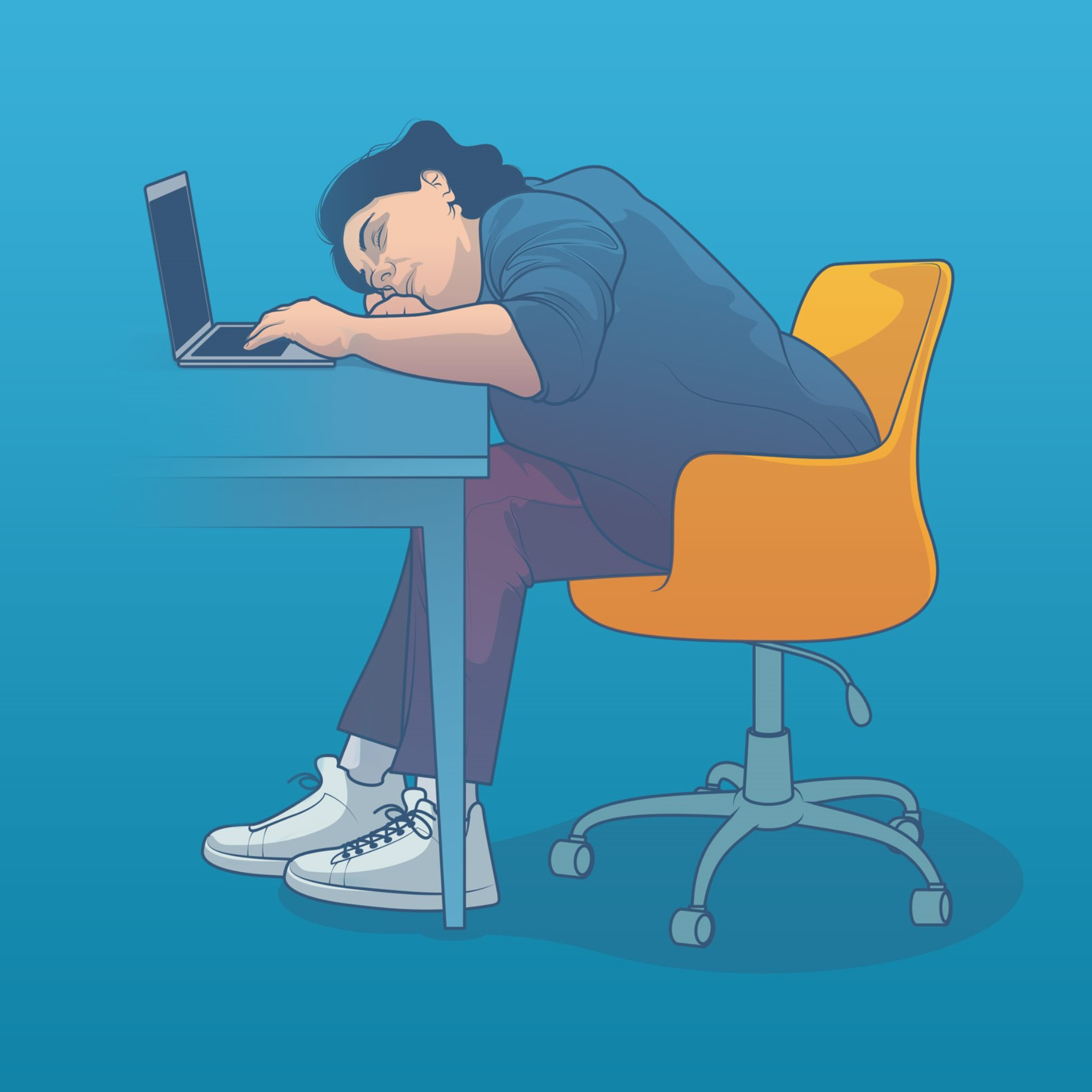Hypersomnia: Understanding the Causes, Symptoms, and Treatment Options
1. What is Hypersomnia?
Hypersomnia is a sleep disorder characterized by excessive daytime sleepiness or prolonged sleep periods that go beyond the typical duration. Individuals with hypersomnia often experience difficulty staying awake during the day, even after getting a full night’s sleep. This condition can have a significant impact on daily functioning, productivity, and overall quality of life. In this article, we will explore the causes, symptoms, and available treatment options for hypersomnia.
2. Types of Hypersomnia
There are several types of hypersomnia, including:
- Idiopathic Hypersomnia: This type of hypersomnia is characterized by excessive sleepiness without a known cause. Individuals with idiopathic hypersomnia may struggle with daytime sleepiness despite obtaining sufficient sleep at night.
- Recurrent Hypersomnia: Recurrent hypersomnia, also known as Kleine-Levin Syndrome (KLS), is a rare sleep disorder characterized by recurrent episodes of excessive sleepiness. These episodes can last for days or weeks, during which individuals may sleep for extended periods, experience cognitive and behavioral changes, and have a heightened appetite.
- Narcolepsy: While narcolepsy is primarily known for causing sudden sleep attacks, it can also lead to excessive daytime sleepiness. Individuals with narcolepsy may have difficulty staying awake throughout the day and may experience sudden episodes of sleep.
- Sleep Apnea: Although sleep apnea is commonly associated with disrupted sleep and frequent awakenings during the night, it can also contribute to excessive daytime sleepiness. The repeated interruptions in breathing can prevent individuals from achieving restful sleep, leading to daytime fatigue.
3. Causes of Hypersomnia
The causes of hypersomnia can vary depending on the type of hypersomnia experienced. Some common causes include:
- Neurological Conditions: Certain neurological disorders, such as brain tumors, multiple sclerosis, and Parkinson’s disease, can disrupt normal sleep patterns and contribute to hypersomnia.
- Genetic Factors: In some cases, hypersomnia may have a genetic component, with a predisposition for excessive sleepiness inherited within families.
- Sleep Disorders: Other sleep disorders, such as sleep apnea and narcolepsy, can cause excessive daytime sleepiness and contribute to hypersomnia.
- Medications: Certain medications, such as sedatives, antihistamines, and some antidepressants, can induce drowsiness and contribute to excessive sleepiness.
- Hormonal Imbalances: Imbalances in hormones, particularly those involved in regulating sleep and wakefulness, can lead to hypersomnia.
- Chronic Fatigue Syndrome: Individuals with chronic fatigue syndrome often experience extreme fatigue and excessive sleepiness, leading to hypersomnia.
- Alcohol and Substance Use: Alcohol and substance abuse can disrupt sleep patterns, leading to excessive daytime sleepiness and contributing to hypersomnia.
4. Symptoms of Hypersomnia
The primary symptom of hypersomnia is excessive daytime sleepiness. Individuals with hypersomnia may find it challenging to stay awake during normal waking hours, regardless of the amount of sleep they get at night. Other common symptoms include:
- Prolonged Sleep: Individuals with hypersomnia may sleep for extended periods, often exceeding 10 hours or more per night.
- Difficulty Waking Up: Despite prolonged sleep, individuals may struggle to wake up in the morning and experience grogginess or confusion upon awakening.
- Sleep Inertia: Sleep inertia refers to a feeling of significant grogginess and confusion that persists after waking up. Individuals with hypersomnia may take a long time to fully wake up and may continue to feel drowsy even after being awake for an extended period.
- Lack of Energy and Motivation: Hypersomnia can significantly impact energy levels and motivation throughout the day, making it difficult for individuals to engage in daily activities and maintain productivity.
- Cognitive Impairment: Excessive daytime sleepiness can impair cognitive function, leading to difficulties with concentration, memory, and decision-making.
- Depression and Mood Changes: Hypersomnia can contribute to feelings of depression, irritability, and mood swings.
- Increased Appetite: Some individuals with hypersomnia may experience an increase in appetite and weight gain.
5. Diagnosis and Treatment Options
Diagnosing hypersomnia requires a thorough evaluation by a healthcare professional specializing in sleep disorders. The diagnostic process may involve:
- Medical History and Physical Examination: The healthcare provider will review the individual’s medical history, including sleep patterns, and perform a physical examination to identify any underlying health conditions that may contribute to hypersomnia.
- Sleep Diary: Keeping a sleep diary can help track sleep patterns, daytime sleepiness, and other relevant symptoms. This information can assist in the diagnostic process.
- Sleep Studies: Polysomnography and multiple sleep latency tests (MSLT) are commonly used sleep studies to evaluate sleep patterns and diagnose hypersomnia. Polysomnography monitors various parameters during sleep, such as brain activity, eye movements, heart rate, and breathing, while the MSLT measures daytime sleepiness by monitoring how quickly an individual falls asleep during daytime nap opportunities.
Treatment options for hypersomnia aim to manage symptoms and improve daytime alertness. These can include:
- Stimulant Medications: Stimulant medications, such as modafinil or armodafinil, may be prescribed to promote wakefulness and reduce excessive daytime sleepiness. These medications can help individuals stay awake and maintain alertness during the day.
- Behavioral and Lifestyle Modifications: Implementing healthy sleep habits and lifestyle changes can contribute to better sleep quality and reduce excessive daytime sleepiness. This may include maintaining a consistent sleep schedule, creating a sleep-friendly environment, practicing relaxation techniques before bed, and avoiding substances that can interfere with sleep, such as caffeine and alcohol.
- Psychological Support: In some cases, therapy or counseling may be beneficial to address any underlying psychological factors contributing to hypersomnia. This can help individuals cope with the impact of hypersomnia on their daily lives and develop strategies for managing excessive sleepiness.
- Treatment of Underlying Conditions: If hypersomnia is secondary to an underlying medical condition, such as sleep apnea or depression, treating the underlying condition may alleviate symptoms of hypersomnia.
- Nap Management: Structured napping strategies, under the guidance of a healthcare professional, can help individuals manage daytime sleepiness without exacerbating nighttime sleep disturbances.
6. Conclusion
Hypersomnia is a sleep disorder characterized by excessive daytime sleepiness and prolonged sleep periods. It can significantly impact an individual’s quality of life, affecting daily functioning, cognitive abilities, and emotional well-being. Seeking proper diagnosis and treatment is essential for managing hypersomnia effectively. By understanding the causes, recognizing the symptoms, and exploring the available treatment options, individuals with hypersomnia can take steps towards improving their sleep quality, enhancing daytime alertness, and regaining control over their daily lives. Consulting with a healthcare professional specializing in sleep disorders is crucial in developing a personalized treatment plan to address the specific needs and challenges associated with hypersomnia.







